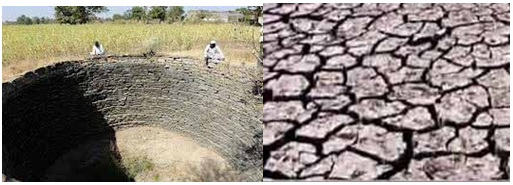In 2013, over 120 talukas were officially declared drought prone in Maharashtra. The water situation in the Marathwada region of the state had especially posed serious concerns with the prevalence of drought in many of its districts thus severely impacting livelihoods, crop yield and cattle. As per the estimates of the Government, only 13% water was left in its dams & reservoirs which is the lowest in the Maharashtra State.
The original supply sources in Omarabad, Jalna and some part of Aurangabad had run out of water. All Districts in Marathwada Region, especially Aurangabad, BeedJalna, Osmanabad were facing the worst crises. In most of the municipal corporations the Drinking Water supply was once in 5-8 days to over 50 towns.
Rabbi crop like Jawar in 1176 villages of Aurangabad district was lost due to severe drought situation.
Loss of income and no work on farms resulted in higher debts. To add to their woes, electricity and water connections were disconnected due to non-payment of dues. Inadequate power led to industrial shut downs, people migrating and children dropping out of schools and colleges.
Worst-hit were the animals and cattle of the area, which due to their inherent helplessness and complete dependency on their drought-stricken owners, became most vulnerable. To tackle this, government initiated cattle camps and sanctioned a few animal shelters.
Tushar - a Drop
Given the urgency of the situation, CII Foundation took a step ahead and aptly contributed a drop in the drought through Project Tushar.
The project, with support from the local District Administration, was undertaken in the identified villages near Aurangabad to make them self-sufficient for their water needs round the year. The project also aimed at sensitizing CII members to raise funds and extend long term support to the drought affected areas of Marathwada.
The project involved:
• De-silting of one portion of Jaikawadi Dam, the biggest reservoir in the area (which feeds water to entire Marathwada region)
• The silt removed was further utilized by farmers as manure in their farms to increase productivity.
• Ushering in water harvesting practices







